BS in Integrative Biology
Very little in this world exists in a vacuum. In the Integrative Biology Department at the University of Colorado Denver, we acknowledge, explore, and celebrate the interdependence of biological systems on each other and the world around them. This means you, as a student, get a fuller, more comprehensive understanding of Biology as a discipline.
Just as our department respects Biology as a part of a broader system, we consider ourselves a part of a greater network. Our interdisciplinary roots with other departments grant you a wide array of choice in expanding your skills and experiences as you earn your degree.
We are invested in you—ensuring you graduate with a profound knowledge in Biological Science, and the ability to communicate scientific theory to others. This expertise scales to almost any field, giving you what you need to find a career you love.
- Program features
- Careers
- Curriculum
- Extend your degree with a double major, minor, or certificate
- Learning outcomes
- Tuition and Scholarships
- How to apply
- Application deadlines
The Biology department partners with many Denver Scientific and Cultural Sites
We partner with the Denver Zoo, Denver Botanic Gardens, and Denver Museum of Nature and Science—among others. These connections give our students a special step into a variety of different biological internships and pursuits that can develop into a rewarding career.
Integrative Biology demonstrates the interconnectedness of biological systems with their surroundings. With integrative biology, you won’t just be learning about, for example, DNA as it simply exists, but also what role it plays in humans' biological systems and in the wider world.
As one of our students, you gain a whole department of faculty that cares about you and your success. We’ve worked hard to remove barriers for our students and intend to continue progressing to this end, offering flexibility and tailoring our program to you. We support you by including:
- Scaffolded learning objectives—Our scaffolded learning objectives are based on skills you build upon so that you feel successful as you grow through our curriculum. We focus on boosting you up and tearing down obstacles in your way—not the other way around.
- Learning Assistants who spend time in the classroom. Students in these unique department positions answer questions students may not feel comfortable asking a professor or faculty member directly, as well as help students build both their study and social skills in and out of the classroom.
- Our students learn by doing. When you join our program, you'll be building skills and testing theories by going into the community and investigating real-world biological issues—like our students do when testing microbial activity through the City of Aurora's water treatment facilities. You'll work hand in hand with department faculty in cross disciplinary work to solve real world problems.
Careers are important to our students, and we know it.
We place a special emphasis in ensuring that you emerge from our program with the skills and knowledge you need not just to survive, but thrive in the modern workplace—no matter where your post-academic journey takes you.
A few examples of careers our graduates step into are:
Biology related careers

Research different degrees and career trajectories at DataUSA.io
This screenshot taken September 2023
Many alumni find careers in biological research and they move into fields such as:
- Laboratory Technician
- Microbiologist
- Clinical Researcher
- preparing for Doctoral or Master’s degree programs
Others are interested in ecology, conservervation, and our environment. Some fields these students join include:
- Wildlife Biologist
- Ecologist
- Conservation Biologist
- working at State or Federal Agencies
Medical related careers
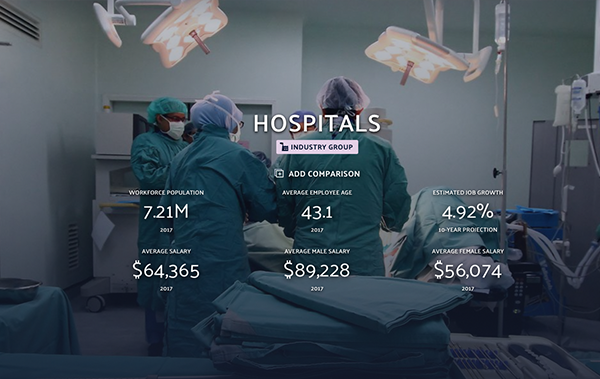
Research different degrees and career trajectories at DataUSA.io
This screenshot taken September 2023
Many of our students are on a pre-health track of which biology is an integral part. In fact Biology is the #1 undergraduate degree for those interested in going to medical school. Medical related fields our students move into include:
- Medicine
- Dentistry
- Nursing
- Physical Therapy
- Physician’s Assistant
The Cadaver Lab
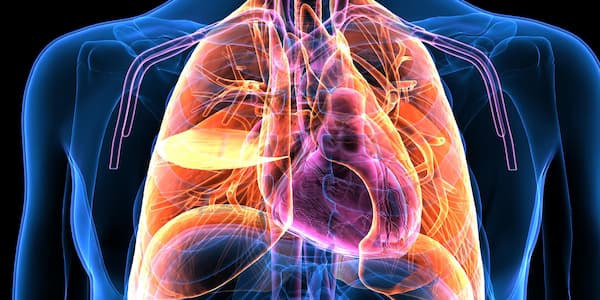
We offer the only human cadaver lab for higher education in the city of Denver giving our students the opportunity to learn human anatomy through observation and dissection firsthand.
In Integrative Biology, our goal isn't just to teach you the science of biology or biological features, but to set you up in life to be a better thinker, better communicator, and a better scientist.
CU Denver Core: 34-40 Hours
You’ll be educated in, english, mathematics, international and cultural diversity perspectives, arts and humanities, behavioral, physical, and social sciences
College of Liberal Arts and Science Core—15 Hours
These courses give you a better understanding of the issues and skills you need to succeed. Topics include:
- Logic, Language, and Scientific Reasoning
- Psychology
- Writing for the Sciences
- Public Health
Bachelor's in Biology Core
Course topics include:
- Organisms to Ecosystems
- Ecology
- Molecules to Cells
- Evolution
- Genetics
- Cell Biology
- Human Physiology
- Internships in Biology
Tracks
Choose a track to specialize your degree and align with your career goals.
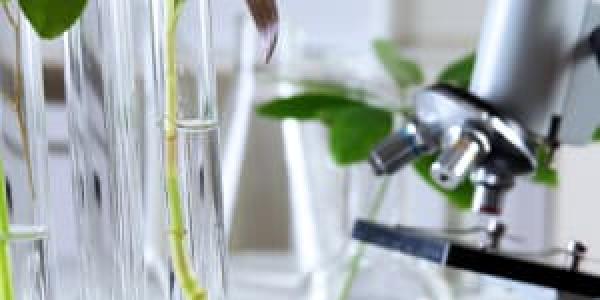
Integrative Biology
This very flexible track is great if you have diverse interests and want to fully explore the field of biology. Consider this track if you are considering a career as a K12 Teacher because it's set of courses are diverse and you will be prepared to teach all aspects of biology.
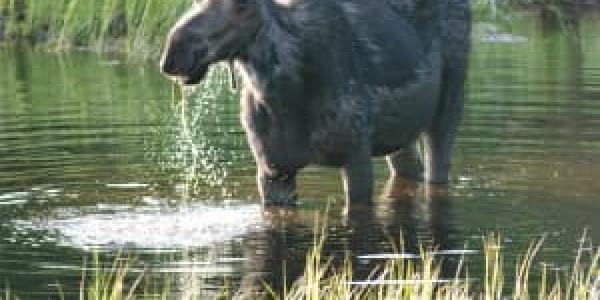
Organisms to Ecosystems
If you are interested in a career in conservation biology, wildlife biology, ecology, evolution and organismal biology consider this track. You will be prepared for a career at state and federal land agencies (NPS, USFS, BLM, etc.), natural history museums and botanical gardens, zoos and aquariums, the veterinary field, organismal and ecology research, environmental education, environmental consulting, nonprofit advocacy and law. Consider pairing this major with the Geographic Information Science Certificate.
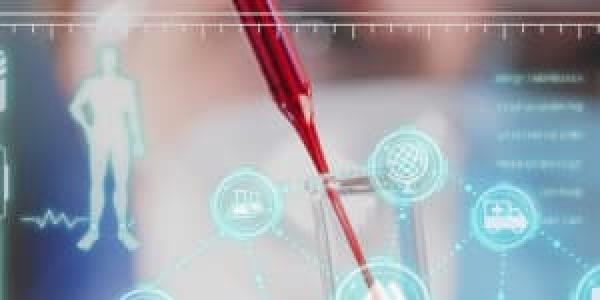
Biotechnology
You will master skills in biotechnology, medicine, agriculture, and finding a response to climate change. In this track you will practice employable laboratory and research skills. Example employers include biotechnology companies, Centers for Disease Control and Prevention, hospital laboratories, pharmaceutical research labs, or food science labs.
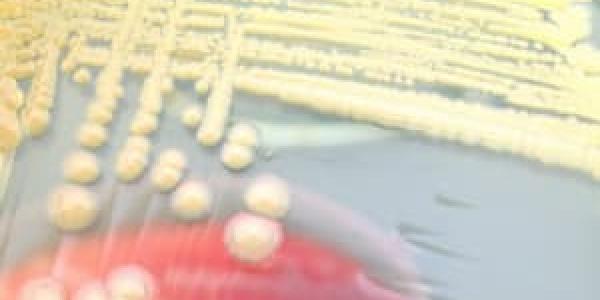
Microbiology
Microbiology studies organisms that, for the most part, are not easily visible with the naked eye, including algae, archaea, bacteria, fungi, protozoa, and viruses. Microbes are notorious for causing disease, but microbes also play critical roles in maintaining human health and supporting life on Earth. You will explore microbes in the context of medicine, molecular biology, cell biology, genetics, immunology, biotechnology, ecology, and evolution. The Microbiology track prepares you for a career in medicine, agriculture, public health, government, environmental science, basic research, education, industrial microbiology, food microbiology, or pharmaceuticals.

Human Biology
Are you interested in the human body and how it works? With this track, you may pursue a career as a health professional, researcher in a lab, or maybe consider public health.
Electives and/or foreign language proficiency
Foreign language courses may be satisfied if you’ve taken a certain number of classes in high school. These electives give you the freedom to dive deeper into topics or courses that interest you.
Add a minor in Biology to another degree
Add a minor in Biology to your degree by completing at least 27 hours of specified coursework. You will need to see your CLAS advisor to declare this minor.
At least 18 hours of Biology courses.
- Human Physiology and Anatomy
- Ecology
- Cell Biology
- Microbiology
- Molecular Biology
- Plant Science
and 9 hours in ancillary courses in chemistry.
Double Majors
You, like many of our students, may be interested in a double major. Common combinations include:
- Chemistry
- Biochemistry
- Physics
- Philosophy
- Mathematics and Statistics
- Public health
- Communication
Pre-Health pathways
The universty has prebuilt various pre-health pathways which can set you up for admission into a graduate program at Anschutz Medical Center or at another institution.
Minors and certificates to consider
We recommend these minors and certificates as excellent extensions of your Integrated Biology bachelor degree.
Sustainability Minor
An interdisciplinary minor, drawing on the expertise across CLAS departments: anthropology, biology, chemistry, communication, economics, environmental sciences, geography, geology, history, economics, philosophy, physics and political science. The core courses are taught by a faculty team who present sustainability concepts from socio-ecological and systems perspectives.
Biophysics Minor
The minor in biophysics enables students with primary interests in biology, chemistry, health sciences, mathematics, anthropology, psychology, or other disciplines to explore the deep connections between fundamental physical processes and the functions and development of life.
Chemistry Minor
This minor give you a broad introduction and laboratory experience without the more technical mathematical and chemical prerequisites required by full the MS in chemistry. This minor is for those majoring in another science.
Environmental Stewardship of Indigenous Lands (ESIL) Certificate
An excellent certificate if you are interested in environmental issues involving indigenous communities including Native Americans, American Indians, Alaskan Natives, and Hawaiian Natives. It can be completed by any student from all educational backgrounds expecially those in biology, civil engineering, geography, and environmental sciences. The certificate provides opportunities for you to learn about environmental issues involving tribal and non-tribal entities through internships and extracurricular activities.
Biotechnology Certificate
This certificate helps you acquire specialized skills relevant to research into agriculture, biofuels, biomedical biotechnology, pharmaceuticals, microbiology, and medical device development. It provides a strong background in biochemistry and molecular biology, with an emphasis on applied training via lab work and research experiences.
We have carefully crafted our curriculum so that upon graduation you are ready for your next career steps. Our learning objectives tell you the skills and knowledge you will master during your studies.
In order to make sure you will learn information and skills that will benefit your career, we have aligned our learning goals with both the American Association of Colleges and Universities (AAC&U) "Essential Learning Outcomes" and the American Association for the Advancement of Science (AAAS) "Vision and Change" for undergraduate biology core concepts and competencies. The headings and descriptions of each number are taken directly from the American Association for the Advancement of Science Vision and Change for Undergraduate Biology Core Concepts and Competencies .
Completing a B.S. in Biology at University of Colorado Denver will help you to master the following knowledge and skills.
- Evolution: The diversity of life evolved over time by processes of mutation, selection, and genetic change.
- Define evolution.
- Explain how the fossil record supports the theory of evolution as a process of descent with modification.
- Describe how Darwin’s observations of nature led to the inferences he developed regarding natural selection.
- Analyze a phylogeny and explain the relationships among the taxa, as well as the evidence supporting those relationships.
- Explain and apply the Hardy-Weinberg theorem as a “null model” for evolution. Explain the assumptions of Hardy-Weinberg equilibrium.
- Explain how genetic drift, selection, mutation, and gene flow can lead to evolution.
- Explain how the mechanisms of evolution have produced the diversity of life that has occurred on Earth.
- Explain how fitness is affected by the interaction of genes and environment.
- Compare and contrast the biological, morphological, and phylogenetic species concepts.
- Explain how isolating barriers contribute to speciation.
- Explain how processes of origination and extinction lead to diversity in different clades.
- Define mass extinction and provide two examples of mass extinctions on earth.
- Structure and Function: Basic units of structure define the function of all living things.
- Predict how changes in structure of molecules, cells, tissues, and organs can affect the function and survival of an organism.
- Explain how structural and functional complexity emerges from the combination of simpler components.
- Explain how biological structures and functions are constrained by evolution.
- Explain how the structure of an individual, population, or community can affect ecological functions and how the environment can affect the structure of an individual, population, or community.
- Information Flow, Exchange, and Storage: The growth and behavior of organisms are activated through the expression of genetic information in context.
- Describe the flow of genetic information within a cell and how the transfer of genetic information is important to biological organisms and systems.
- Describe processes of gene expression and regulation, and their effect on phenotype.
- Deduce information about genes and alleles from analysis of genetic crosses and patterns of inheritance.
- Describe how intracellular and extracellular signaling affects cellular responses.
- Describe mechanisms that produce and transmit genetic variation.
- Explain the mechanisms by which changes in alleles or epigenetic modifications can affect phenotype and reproductive success.
- Explain how fitness is affected by the interaction of genes and environment.
- Explain why neuronal and hormonal signaling are examples of information flow.
- Pathways and Transformations of Energy and Matter: Biological systems grow and change by processes based upon chemical transformation pathways and are governed by the laws of thermodynamics.
- Use the 1st and 2nd laws of thermodynamics to explain energy and matter transformations at the cellular, tissue, and organismic level through digestion, cellular respiration, and photosynthesis.
- Describe how matter is cycled through ecosystems.
- Describe how energy flows through ecosystems.
- Explain why exergonic and endergonic reactions must be coupled.
- Explain how enzymes affect chemical reactions.
- Use the 1st and 2nd laws of thermodynamics to explain energy and matter transformations in ecosystems.
- Explain why the synthesis and breakdown of ATP is a transformation of energy and matter.
- Describe how energy and matter are transformed during and across life cycles.
- Systems: Living systems are interconnected and interacting.
- Describe how predictive and stochastic models help us understand biological processes.
- Explain how structural and functional complexity of a system emerges from the combination of simpler components.
- Describe how diverse cellular responses are generated by integration of chemical and physical signals that vary in time, space, and intensity.
- Explain how feedback mechanisms regulate function at various levels of biological organization.
- Explain how stochastic and deterministic biotic and abiotic factors influence structure, function, and biodiversity of systems.
Core Compentencies
- Ability to apply the process of science through inquiry and analysis. Biology is evidence based and grounded in the formal practices of observation, experimentation, and hypothesis testing. Note – this corresponds to the American Association for the Advancement of Science (AAAS) "Vision and Change" core competency of “Ability to Apply the Process of Science” and the American Association of Colleges and Universities (AAC&U) essential learning outcome of “Inquiry and Analysis."
- Evaluate reliability of sources of information.
- Locate, summarize, and explain how a study contributes to the field.
- Develop and critique scientific hypotheses.
- Design and conduct observational and experimental studies with attention to replication and statistical design constraints.
- Analyze and interpret data to form conclusions.
- Articulate variables and assumptions required by a study.
- Place scientific findings into a larger intellectual/contextual framework.
- Ability to use quantitative reasoning. Biology relies on applications of quantitative analysis and mathematical reasoning. Note – this corresponds to the American Association for the Advancement of Science (AAAS) "Vision and Change" core competency of “Ability to Use Quantitative Reasoning” and the American Association of Colleges and Universities (AAC&U) essential learning outcome of “Quantitative Literacy.”
- Manage and organize data sets.
- Create and interpret data visualizations (e.g., graphs, tables).
- Apply descriptive and inferential statistical methods of design and analysis for diverse study questions.
- Use data to draw conclusions about biological processes.
- Use mathematical formulas to reason biological processes and understand the underlying probability in the calculations.
- Ability to use modeling and simulation. Biology focuses on the study of complex systems. All students should understand how mathematical and computational tools describe living systems. Note – this corresponds to the American Association for the Advancement of Science (AAAS) "Vision and Change" core competency of “Ability to Use Modeling and Simulation” and the American Association of Colleges and Universities (AAC&U) essential learning outcome of “Quantitative Literacy.”
- Describe the assumptions used to make a model and evaluate alternate models.
- Explain the effects of probability and uncertainty in biological models.
- Interpret models given changing variables.
- Create a conceptual model to represent related components and processes of biological systems.
- Create a quantitative model to represent related components and processes of biological systems.
- Interpret quantitative and conceptual models.
- Ability to tap into the interdisciplinary nature of science. Biology is an interdisciplinary science. Integration among subfields in biology, as well as integration between biology and other disciplines, has advanced our fundamental understanding of living systems. Note – this corresponds to the American Association for the Advancement of Science (AAAS) "Vision and Change" core competency of “Ability to tap into the interdisciplinary nature of science” and the American Association of Colleges and Universities (AAC&U) essential learning outcome of “Integrative Learning.”
- Draw conclusions about a complex problem by combining examples, facts, and theories from more than one biological or scientific field of study.
- Ability to communicate and collaborate with other disciplines. Biology is a collaborative scientific discipline. Biological research increasingly involves teams of scientists who contribute diverse skills to tackling large and complex biological problems. Note – this corresponds to the American Association for the Advancement of Science Vision and Change Core Competency of “Ability to Communicate and Collaborate with Other Disciplines” and the American Association of Colleges and Universities Essential Learning Outcomes of “Oral Communication," “Written Communication,” and “Teamwork.”
- Demonstrate an understanding of context, audience, and purpose in writing.
- Use appropriate conventions of organization, content, formatting, presentation, and style in writing.
- Correctly cite high-quality, relevant sources to support arguments.
- Orally communicate scientific understanding to both scientific and general audiences.
- Work efficiently and professionally in teams.
- Ability to understand the relationship between science and society. Biology is conducted in a societal context. Biologists have an increasing opportunity to address critical issues affecting human society by advocating for the growing value of science in society, by educating all students about the need for biology to address pressing global problems. Note – this corresponds to the American Association for the Advancement of Science Vision and Change Core Competency of “Ability to Understand the Relationship Between Science and Society” and the American Association of Colleges and Universities Essential Learning Outcomes of “Ethical Reasoning” and “Civic Engagement."
- Explain relationships between biological principles and global, economic, environmental, and societal issues.
- Describe how the history of scientific thought has shaped the development of scientific principles.
The cost of tuition for the Bachelor of Science (BS) in Biology is different for in-state and out-of-state students. See the link for the current table of rates.
Residents of Western Interstate Commission for Higher Education (WICHE) states may qualify for reduced tuition rates. The Western Undergraduate Exchange (WUE) program requires students to maintain current residency in WICHE state until degree completion.
Scholarships
Each year, CU Denver undergraduate students are awarded over $30 million in scholarships from institutional, local, state, and national sources. Learn more, and apply here.
Ths Smilodon Award Grant
The Smilodon Award for outstanding students with an interest in a career or graduate degree in biology. The award recoginizes outstanding undergraduate and graduate scholars in the department of Intergrative Biology. The award is awarded to current biology students nominated by the faculty, staff, and fellow students or their scholarly achievements, ethics, and contributions to the department.
Other opportunities
The department of Integrative Biology and other departments have paid positions (both in the work-study program and outside of it) which may include jobs as graders, teaching assistants, and learning assistants. Please expect to have to apply. Learn more here.
Admission Requirements
If you are an incoming freshman to CU Denver (in-state, out-of-state, and international applicants), you can apply through either the Common Application or the Milo Application. Transfer students will need to submit the Milo Application.
Incoming first-year students
CU Denver requires that students complete the Colorado Higher Education Admission Requirements (HEAR). You will not have to meet all Minimum Academic Preparation Standards (MAPS) for admission, but you will need to complete CU Denver coursework by graduation.
Transfer Students
We have strong connections with other four-year and community colleges. If you have completed more than 24 hours of transferable coursework, you will be evaluated for admission on the basis of your college GPA without regard to your high school performance. If you have fewer than 24 hours, you will be evaluated based on both your high school and college GPAs. For more information and to plan your transfer, see transfer admissions in the admissions office.
Bridge to Bachelors
If you are in your first or second semester at one of the participating Colorado community colleges and plan to transfer to CU Denver after earning your associate degree, CU Denver’s Admission Promise might be a great program for you. To qualify, you must meet the criteria including meeting regularly with your assigned CU academic advisor while you are attending community college. See the promise page for details and the link to the eligibility questionnaire.
International Students
You will need to begin your application through the Office of International Affairs. They will help you manage your application process.
Spring
Domestic Application: January 1
International Applications: Priority is September 15, and Final is October 15
Summer
Domestic Applications: May 15
International Applications: Priority is January 15, and Final is March 15
Fall
Domestic Applications: August 1
International Applications: Priority is March 15, and Final is May 15
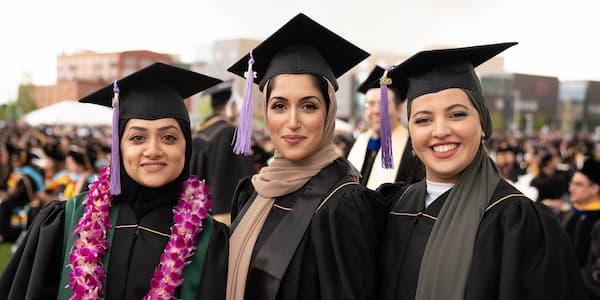
Inclusion is our value
CU Denver is home to one of the most diverse student populations in Colorado.
- The Biology department launched the Inclusive Pedagogy Academy to ensure our faculty has the most effective, modern, and comprehensive equity-based practices available today.
- Join your choice of 100+ student groups and organizations which support your identity and interests
- Learn more at our Office of Diversity, Equity, and Inclusion

Find your people
Campus can feel like a huge place. We help you find your people by offering the experience of a more traditional, small liberal arts program – for a fraction of the cost — and host a variety of social networking opportunities.
- CU Denver Biology Club
- Beta Beta Beta (TriBeta) Biological Honor Society
- CU Denver Future Doctors
- CU Denver Pre-Dental Club
- Pre-Veterinary Club of Denver
- CU Denver Pre-Physician Assistant Club

See your future
We’re proud of our students. They are scientists.
—Michael Greene, Professor, Chair












